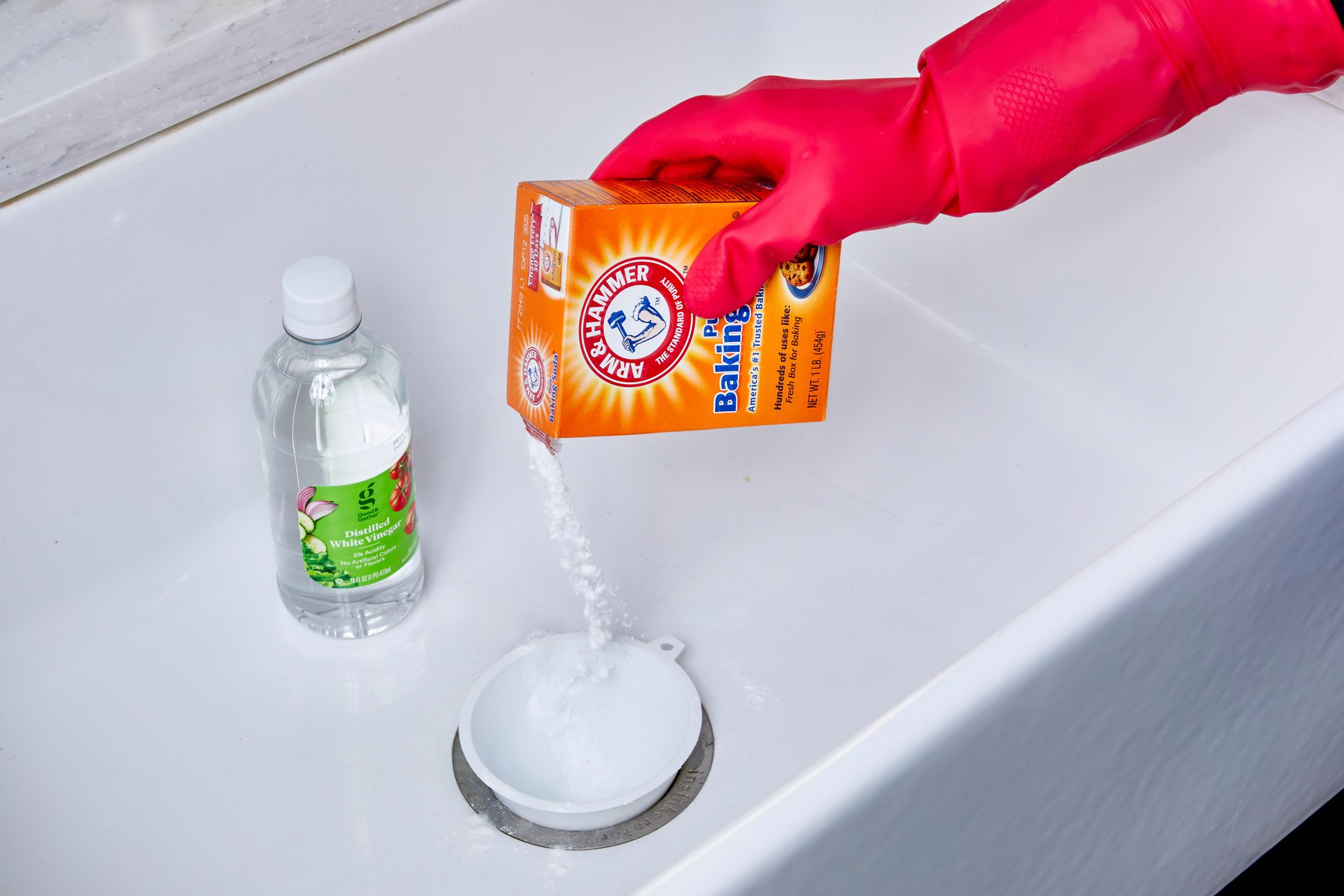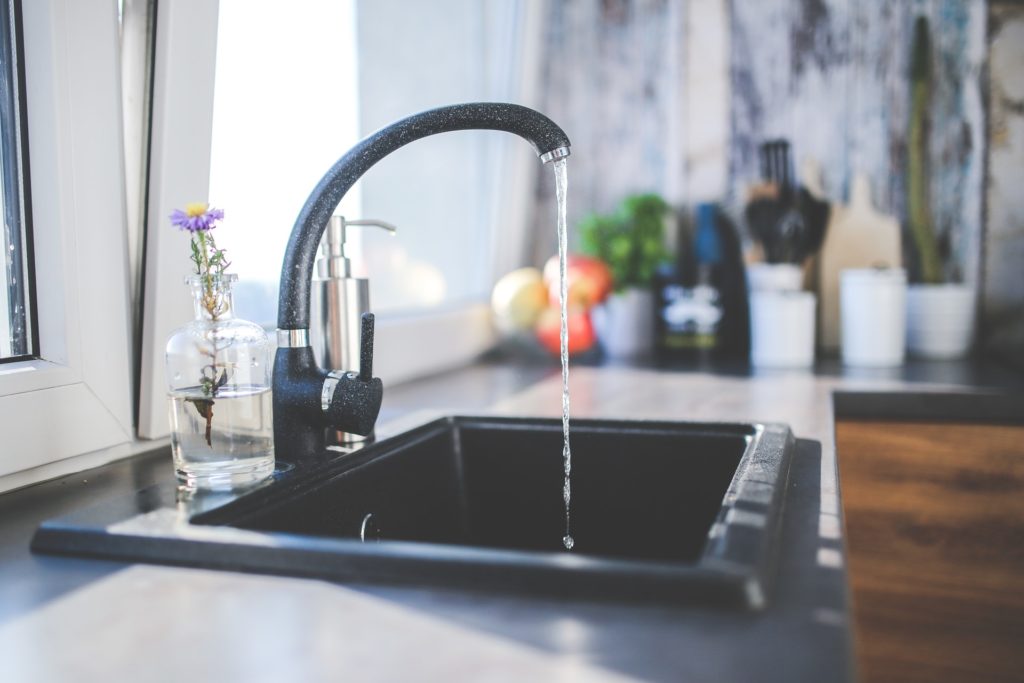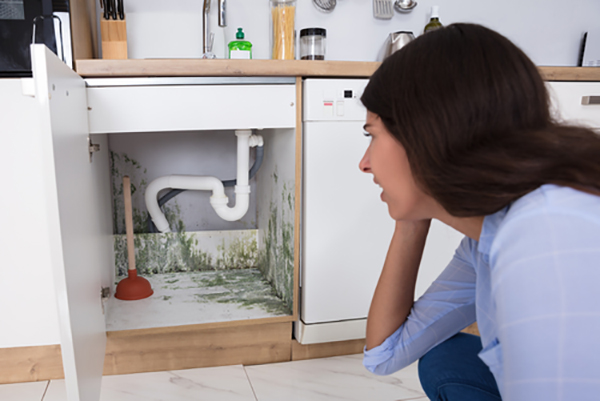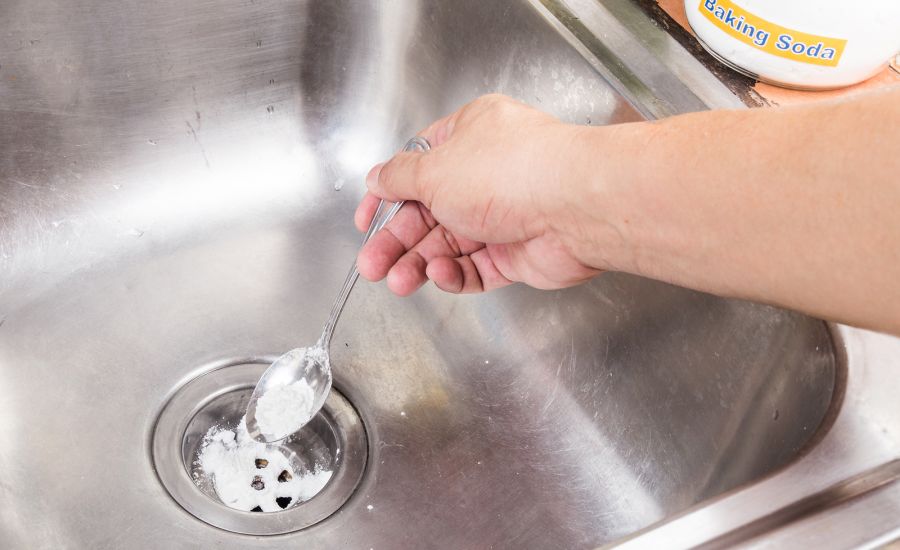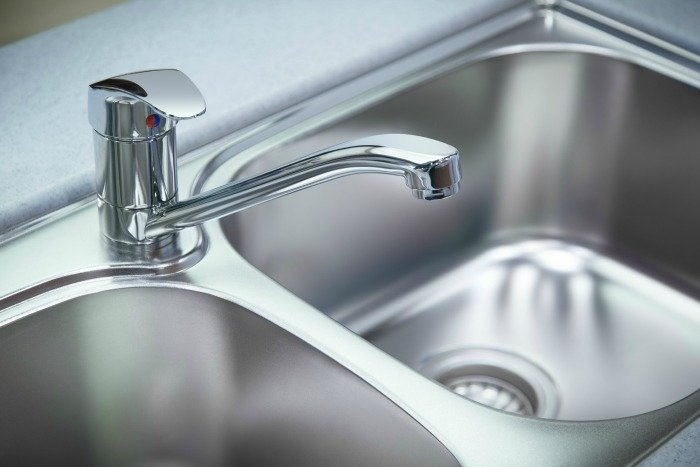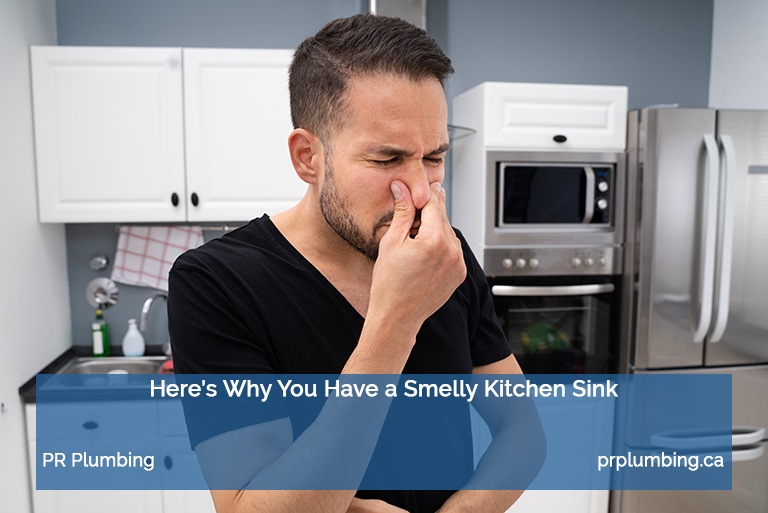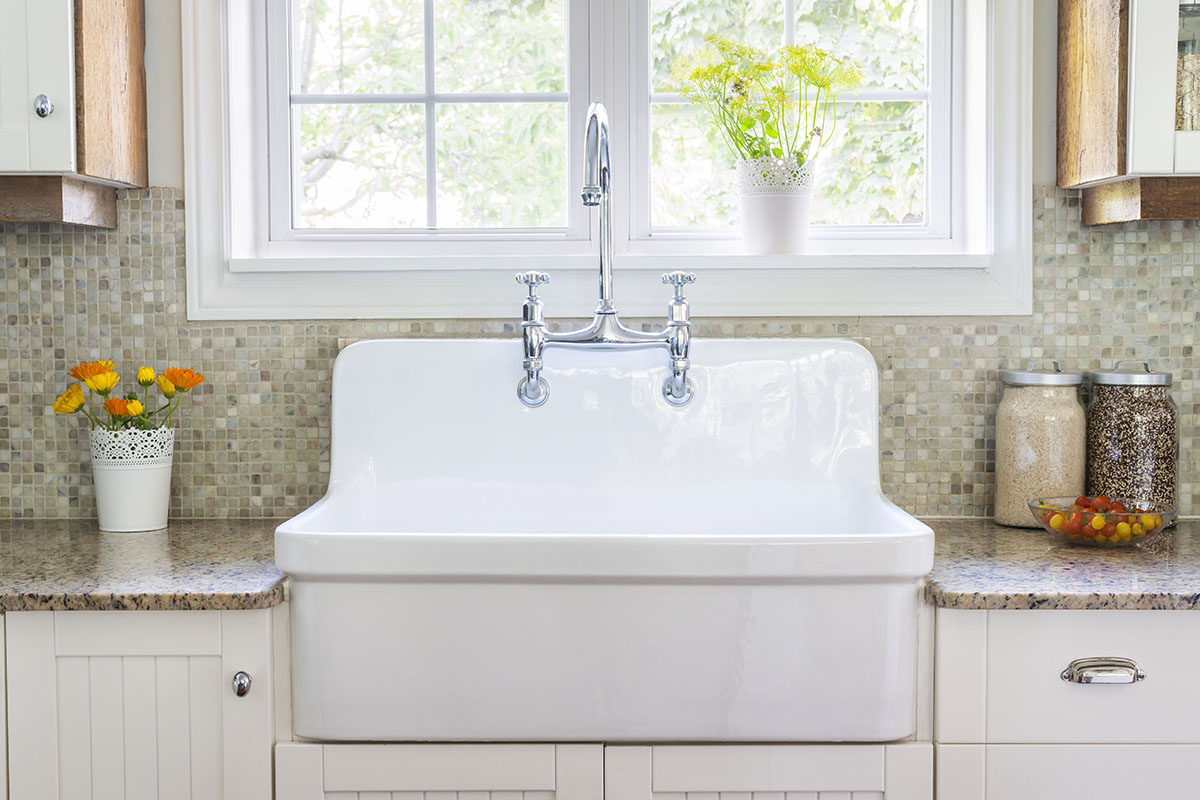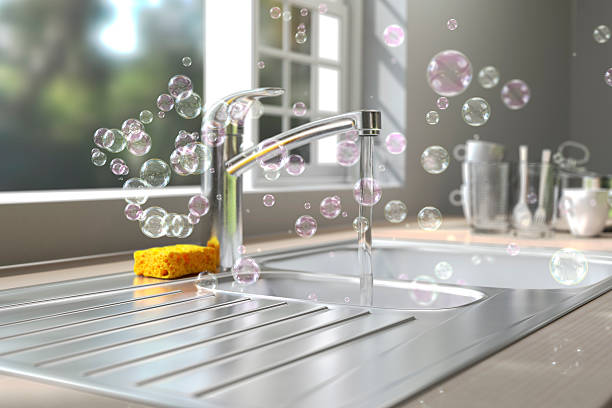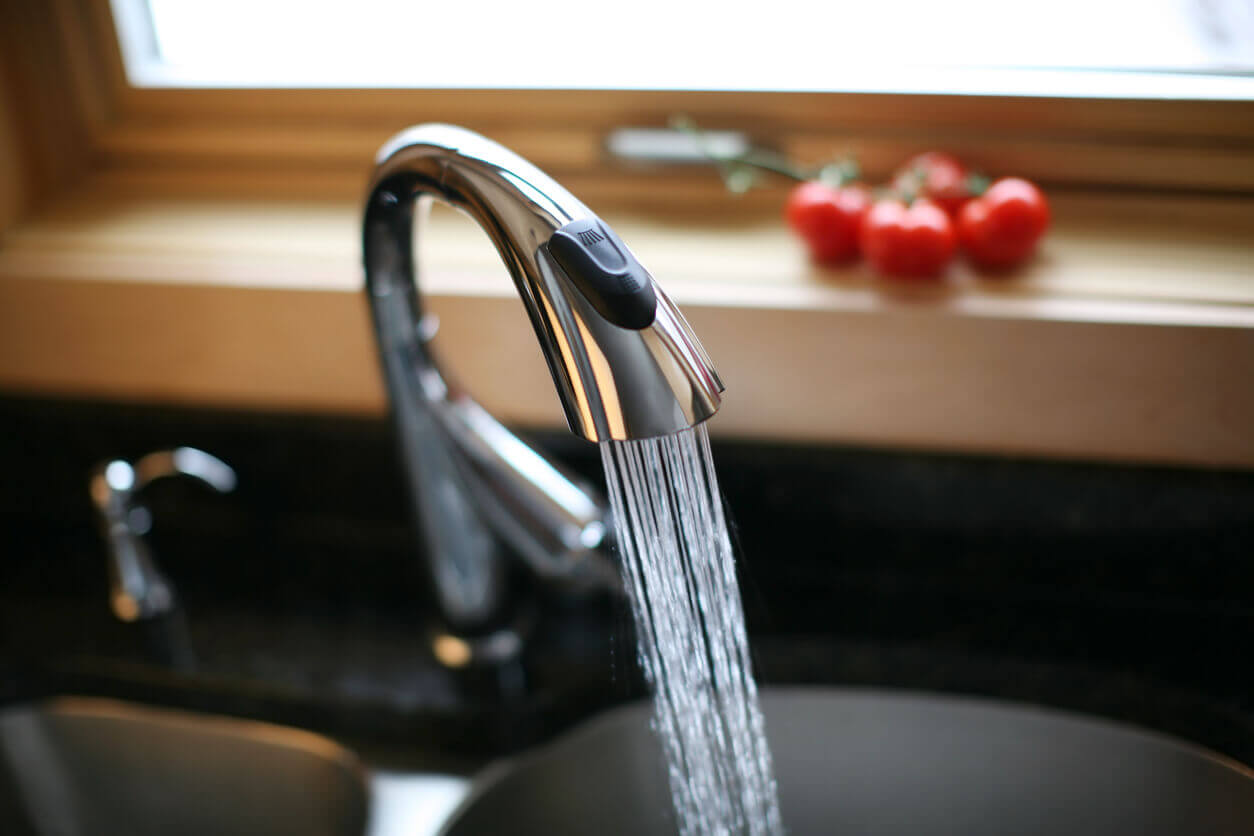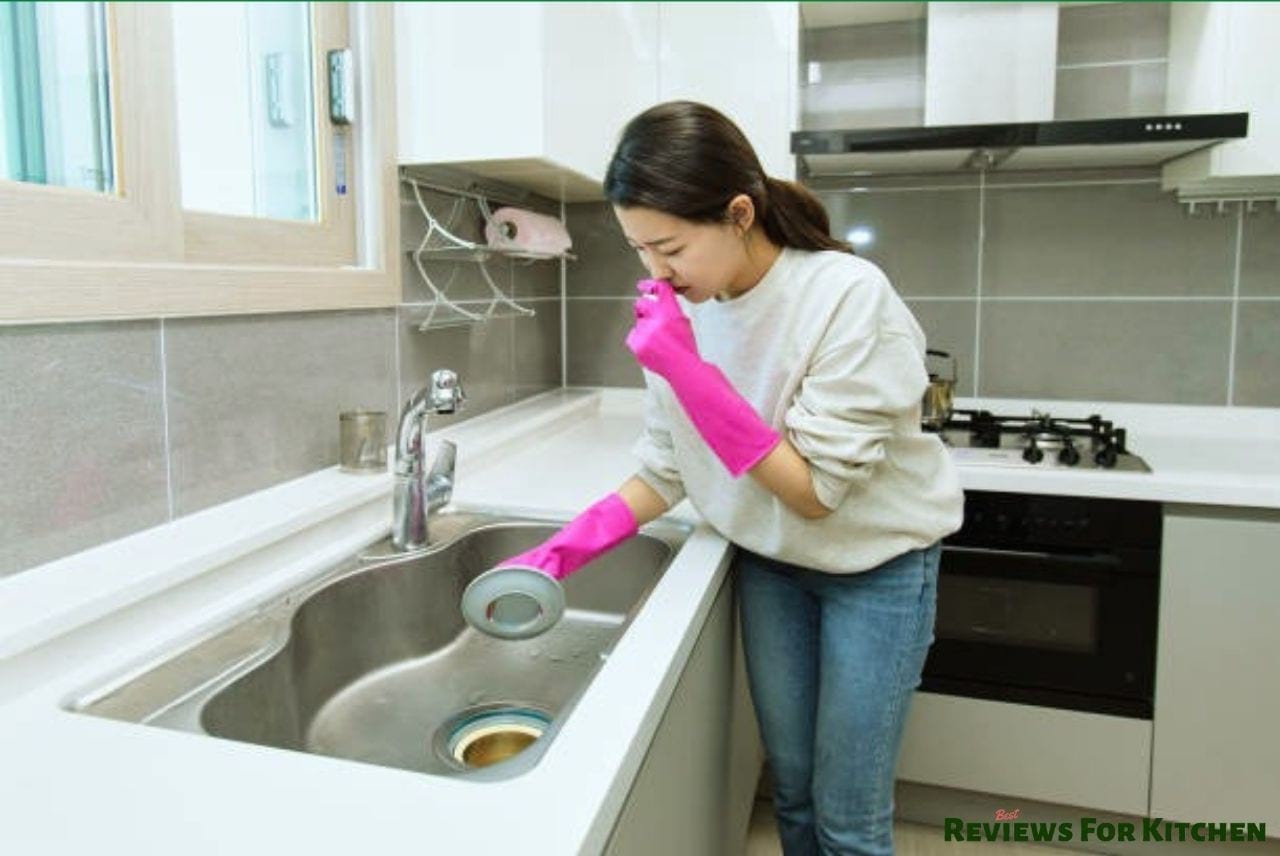If your kitchen sink has been emitting a musty, mildew smell, you are not alone. Many homeowners struggle with this unpleasant odor, which can make washing dishes and preparing food a less than enjoyable experience. But what exactly causes a smelly kitchen sink? There are a few common culprits that could be to blame. One of the most common causes of a smelly kitchen sink is a buildup of food particles and debris. When these particles get stuck in the drain or garbage disposal, they can start to rot and produce an unpleasant odor. Another potential cause is a clog in the drain, which can trap food and lead to a buildup of bacteria and mold. In some cases, the smell may be coming from the water itself. If your home has hard water, minerals can build up in the sink and produce a musty smell. Additionally, bacteria can thrive in the moist environment of a sink, leading to a foul odor.1. Causes of a Smelly Kitchen Sink
Fortunately, there are several effective methods for getting rid of a mildew smell in your kitchen sink. One of the first steps is to thoroughly clean and sanitize the sink and drain. This can be done using a mixture of hot water, dish soap, and white vinegar. Simply pour the mixture down the drain and let it sit for a few minutes before rinsing it out with hot water. If the smell persists, you can also try using a commercial drain cleaner or a mixture of baking soda and lemon juice. For tougher clogs, a plunger or plumbing snake may be necessary. It is important to address any clogs or buildup as soon as possible to prevent the problem from worsening. In addition to cleaning the sink and drain, you can also try using a deodorizing product specifically designed for kitchen sinks. These products work by neutralizing odors and preventing them from coming back.2. How to Get Rid of a Mildew Smell in the Kitchen Sink
The best way to deal with a smelly kitchen sink is to prevent it from happening in the first place. Here are a few tips to help keep your sink smelling fresh: • Dispose of food properly: Avoid putting large amounts of food down the drain and always use a garbage disposal to break up any food particles. • Run hot water regularly: Running hot water down the drain after each use can help flush out any food or debris that may be lingering. • Use a sink strainer: A sink strainer can help prevent food particles from going down the drain and causing clogs. • Clean the sink regularly: Wiping down the sink and drain with a mixture of hot water and vinegar can help prevent buildup and odors.3. Tips for Preventing a Smelly Kitchen Sink
If you prefer to use natural remedies, there are several options that can help eliminate mildew smells in your kitchen sink. One popular method is to pour a cup of baking soda down the drain, followed by a cup of vinegar. Let the mixture sit for a few minutes before rinsing it out with hot water. You can also try using essential oils, such as lemon or tea tree oil, to deodorize your sink. Simply mix a few drops of your chosen oil with hot water and pour it down the drain. Another natural remedy is to freeze a mixture of vinegar and water in an ice cube tray, and then run the ice cubes down the disposal to help clean and deodorize it.4. Natural Remedies for a Smelly Kitchen Sink
If the smell is coming from your sink drain, there are a few steps you can take to clean it and get rid of the odor. First, remove any visible debris from the drain and then pour a pot of boiling water down the drain. Next, sprinkle a cup of baking soda down the drain and let it sit for a few minutes before pouring a cup of white vinegar down the drain. This will create a foaming reaction that helps break up any buildup and eliminate odors. After a few minutes, rinse the drain with hot water. If the smell persists, you can also try using a commercial drain cleaner or a mixture of baking soda and lemon juice.5. How to Clean a Kitchen Sink Drain That Smells
It is important to avoid certain habits or mistakes that can contribute to a smelly kitchen sink. Here are a few things to keep in mind: • Pouring grease down the drain: Grease can solidify in your pipes and cause clogs, leading to bad smells. • Not using the disposal often enough: If you have a garbage disposal, it is important to use it regularly to prevent food from building up in the drain. • Using harsh chemicals: Chemical drain cleaners can damage your pipes and may not fully eliminate the source of the smell. • Neglecting to clean the sink and drain: Regularly cleaning your sink and drain can help prevent odors and keep your kitchen smelling fresh.6. Common Mistakes That Can Cause a Smelly Kitchen Sink
If the mildew smell in your kitchen sink is particularly stubborn, there are a few additional steps you can take to eliminate it. First, try pouring a cup of bleach down the drain and letting it sit for a few minutes before rinsing it out with hot water. This can help kill any bacteria or mold that may be causing the smell. You can also try using a mixture of equal parts hydrogen peroxide and water to disinfect the drain and eliminate odors. Simply pour the mixture down the drain and let it sit for a few minutes before rinsing it out with hot water.7. How to Eliminate Mildew Smells in Your Kitchen Sink
If you prefer to use commercial products to eliminate kitchen sink smells, there are several options available. Look for products that are specifically designed for use in kitchen sinks and that contain ingredients like enzymes and bacteria to break down food particles and eliminate odors. Some popular options include Bio-Clean, Green Gobbler, and Glisten Disposer Care. These products can be used regularly to keep your sink smelling fresh and prevent clogs.8. The Best Products for Getting Rid of a Smelly Kitchen Sink
Now that you have successfully eliminated the mildew smell in your kitchen sink, it is important to take steps to prevent it from coming back. Regularly cleaning your sink and drain, properly disposing of food, and using natural remedies can all help keep your kitchen sink smelling fresh. Additionally, consider using a garbage disposal cleaner or a deodorizing product specifically designed for kitchen sinks on a regular basis. These products can help maintain a clean and fresh-smelling sink.9. How to Keep Your Kitchen Sink Smelling Fresh
In some cases, a musty smell in your kitchen sink could be a sign of a larger issue. If the smell persists despite your best efforts to eliminate it, it is important to call a plumber for further inspection. They can identify any potential problems, such as a broken or clogged pipe, and provide a solution. Additionally, if you notice other issues such as slow draining or gurgling sounds coming from your sink, it is important to address these as they could indicate a more serious problem. In conclusion, a smelly kitchen sink can be a frustrating and unpleasant issue to deal with. However, with the right cleaning methods and preventative measures, you can eliminate the smell and keep your kitchen smelling fresh and clean. Whether you prefer natural remedies or commercial products, there are plenty of options available to help you get rid of that mildew smell for good.10. Signs That Your Kitchen Sink Smell Could Be a Bigger Problem
Causes of a Kitchen Sink Smelling Like Mildew

Understanding the Problem
 If you've noticed a lingering, unpleasant odor coming from your kitchen sink, chances are it smells like mildew. This musty smell can be quite off-putting, especially when you're trying to prepare meals or do dishes. But what exactly causes this unpleasant odor? There are a few common culprits to consider.
If you've noticed a lingering, unpleasant odor coming from your kitchen sink, chances are it smells like mildew. This musty smell can be quite off-putting, especially when you're trying to prepare meals or do dishes. But what exactly causes this unpleasant odor? There are a few common culprits to consider.
Moisture Build-Up
 One of the main reasons your kitchen sink may smell like mildew is due to moisture build-up. As we use our sinks to wash dishes and clean, water can often splash onto the surrounding surfaces and linger for extended periods. Over time, this moisture can lead to the growth of mold and mildew, which emit a musty odor. This is why it's important to regularly wipe down and dry your sink and surrounding areas after use.
One of the main reasons your kitchen sink may smell like mildew is due to moisture build-up. As we use our sinks to wash dishes and clean, water can often splash onto the surrounding surfaces and linger for extended periods. Over time, this moisture can lead to the growth of mold and mildew, which emit a musty odor. This is why it's important to regularly wipe down and dry your sink and surrounding areas after use.
Clogged Drain
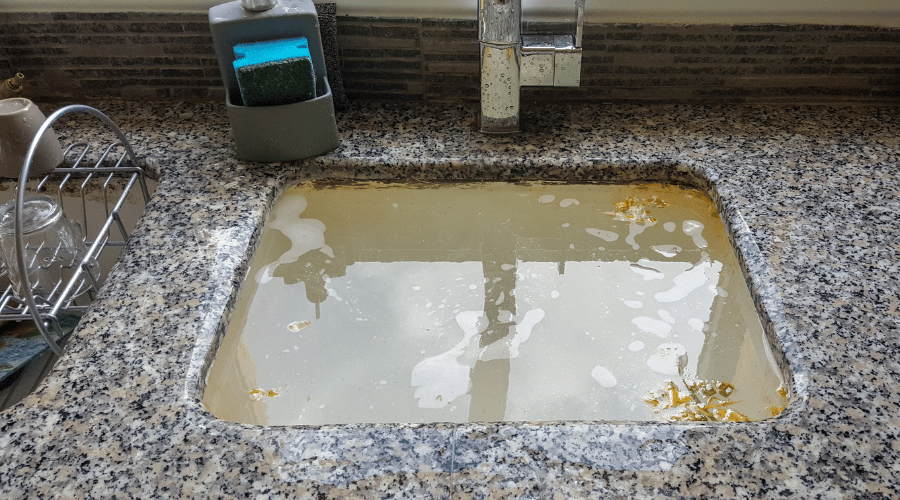 Another potential cause of a smelly kitchen sink is a clogged drain. When food particles, grease, and other debris get stuck in your drain, they can start to decompose, creating a foul odor. This is especially common in kitchen sinks, as we often wash food scraps down the drain while doing dishes. To prevent this, make sure to use a drain catcher and regularly clean out your drain to remove any build-up.
Another potential cause of a smelly kitchen sink is a clogged drain. When food particles, grease, and other debris get stuck in your drain, they can start to decompose, creating a foul odor. This is especially common in kitchen sinks, as we often wash food scraps down the drain while doing dishes. To prevent this, make sure to use a drain catcher and regularly clean out your drain to remove any build-up.
Dirty Garbage Disposal
 If your kitchen sink has a garbage disposal, it could also be the source of the mildew smell. Over time, food particles and debris can get trapped in the disposal, leading to bacterial growth and a foul odor. To combat this, regularly clean your garbage disposal by running ice cubes and citrus peels through it, followed by a mixture of baking soda and vinegar. This will help eliminate any build-up and eliminate odors.
If your kitchen sink has a garbage disposal, it could also be the source of the mildew smell. Over time, food particles and debris can get trapped in the disposal, leading to bacterial growth and a foul odor. To combat this, regularly clean your garbage disposal by running ice cubes and citrus peels through it, followed by a mixture of baking soda and vinegar. This will help eliminate any build-up and eliminate odors.
Leaking Pipes
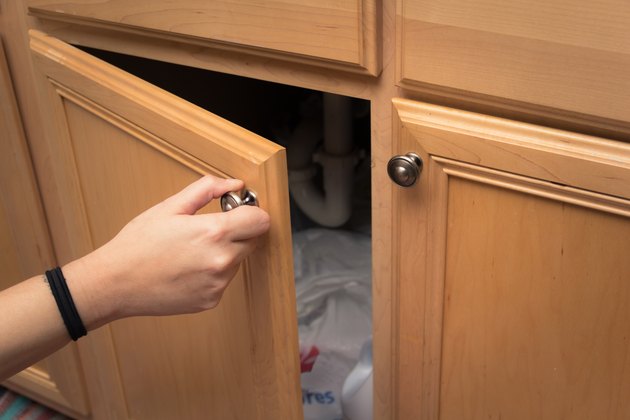 Lastly, a less common but possible cause of a smelly kitchen sink is leaking pipes. If there is a small leak in your sink's plumbing, it can create a damp environment where mold and mildew can grow. This can not only lead to an unpleasant smell but also cause damage to your home. If you suspect a leak, it's important to have it fixed by a professional plumber.
In Conclusion
, a kitchen sink smelling like mildew can be a frustrating and unpleasant problem to deal with. However, by understanding the potential causes and taking preventative measures, you can eliminate the odor and keep your kitchen smelling fresh and clean. Regularly cleaning and maintaining your sink and surrounding areas is key to preventing moisture build-up and bacterial growth. If the smell persists, it's always best to consult a professional to ensure there are no underlying plumbing issues.
Lastly, a less common but possible cause of a smelly kitchen sink is leaking pipes. If there is a small leak in your sink's plumbing, it can create a damp environment where mold and mildew can grow. This can not only lead to an unpleasant smell but also cause damage to your home. If you suspect a leak, it's important to have it fixed by a professional plumber.
In Conclusion
, a kitchen sink smelling like mildew can be a frustrating and unpleasant problem to deal with. However, by understanding the potential causes and taking preventative measures, you can eliminate the odor and keep your kitchen smelling fresh and clean. Regularly cleaning and maintaining your sink and surrounding areas is key to preventing moisture build-up and bacterial growth. If the smell persists, it's always best to consult a professional to ensure there are no underlying plumbing issues.



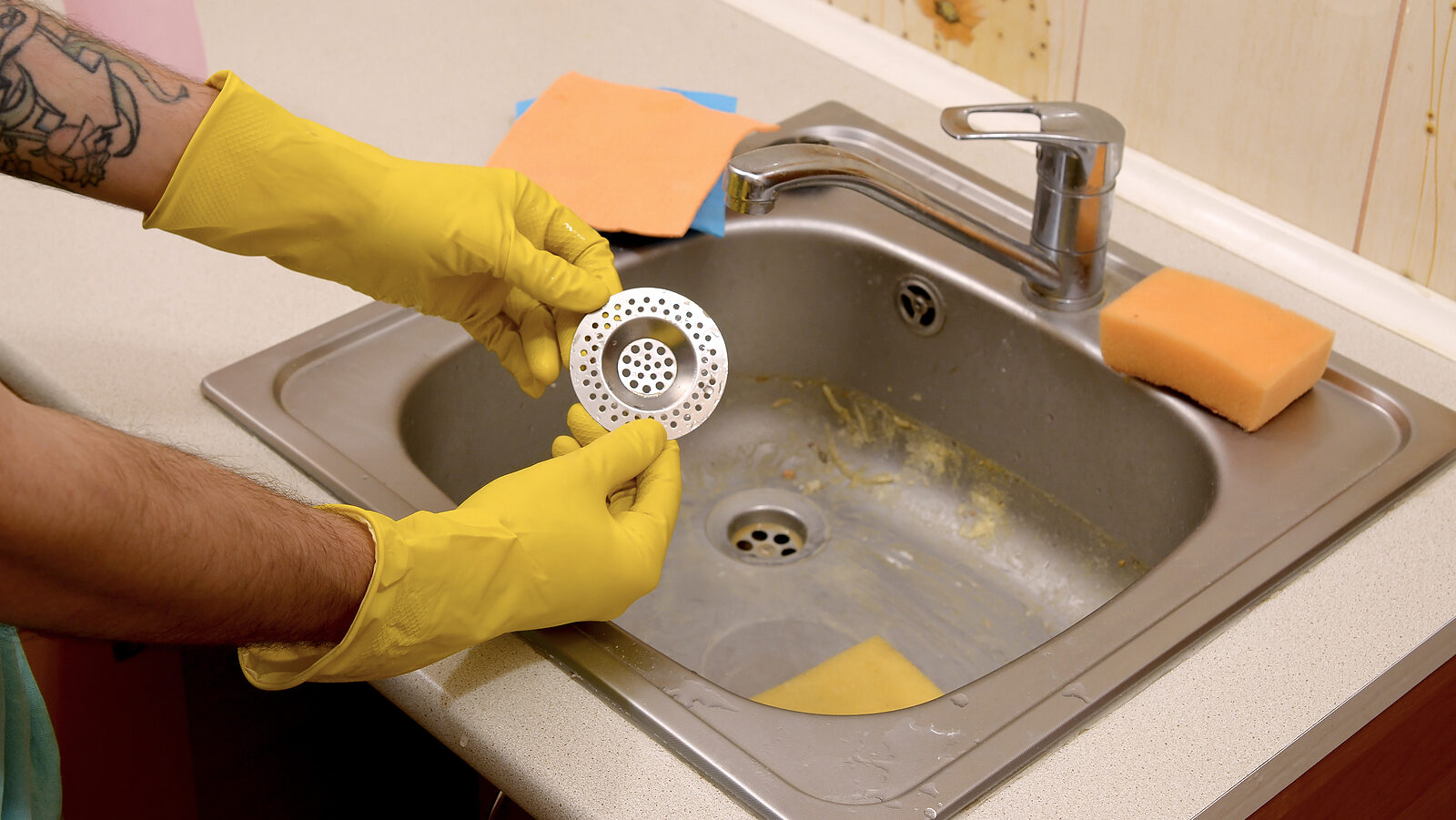

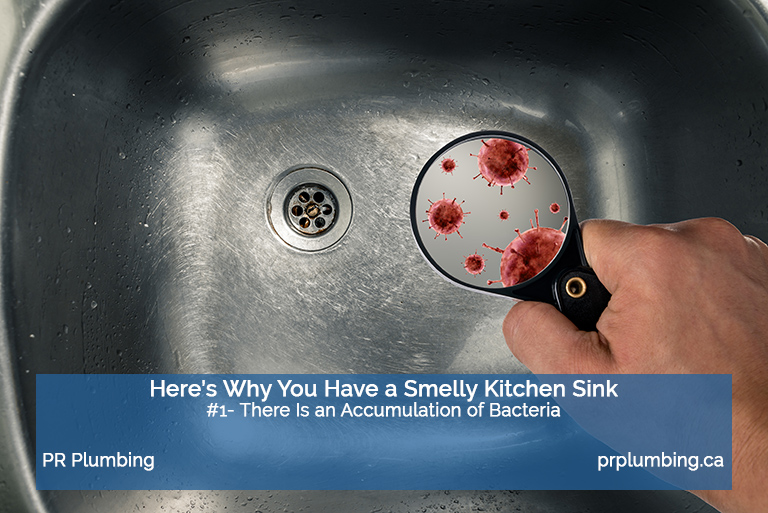
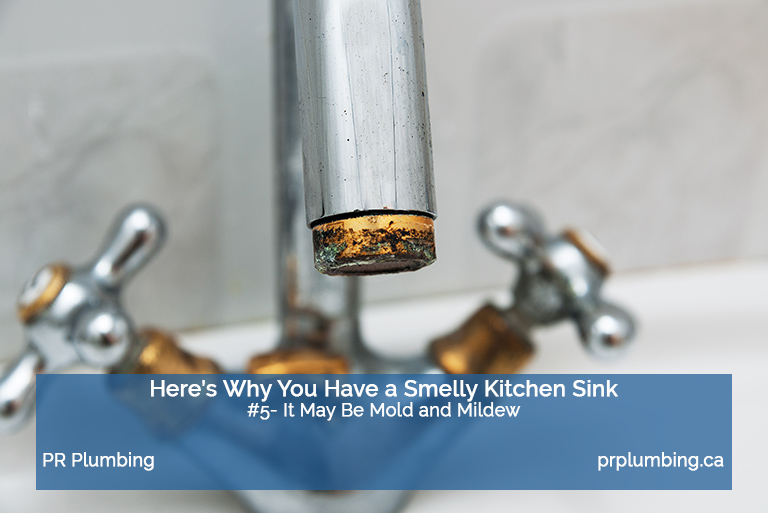







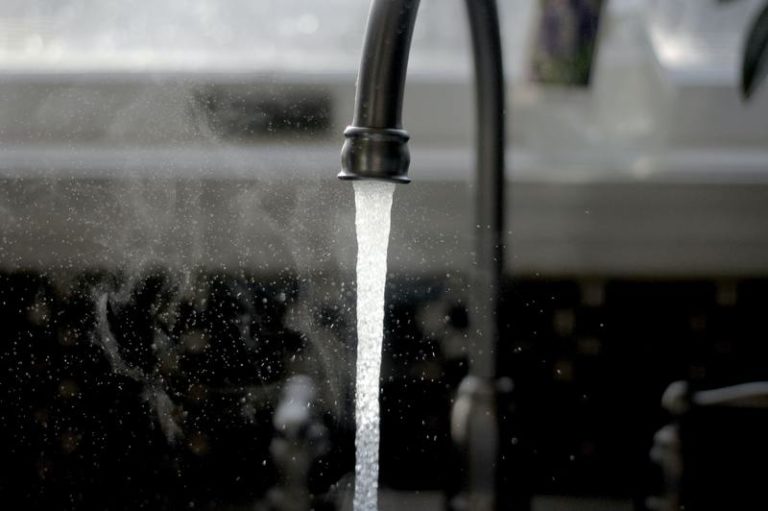


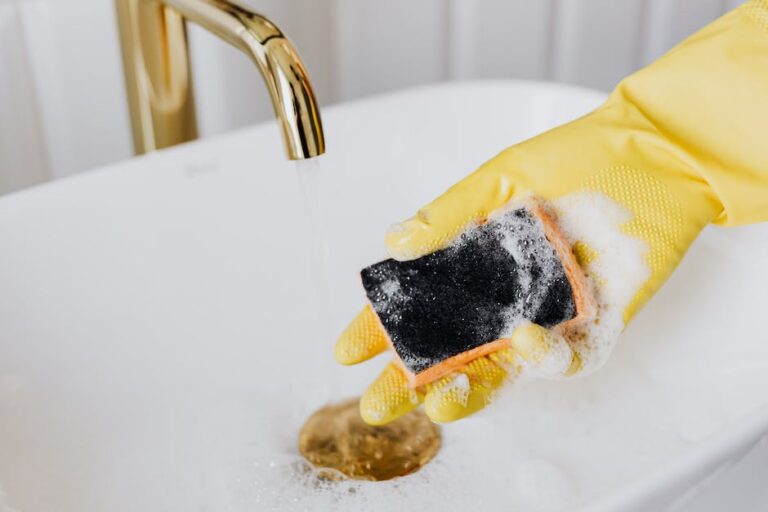







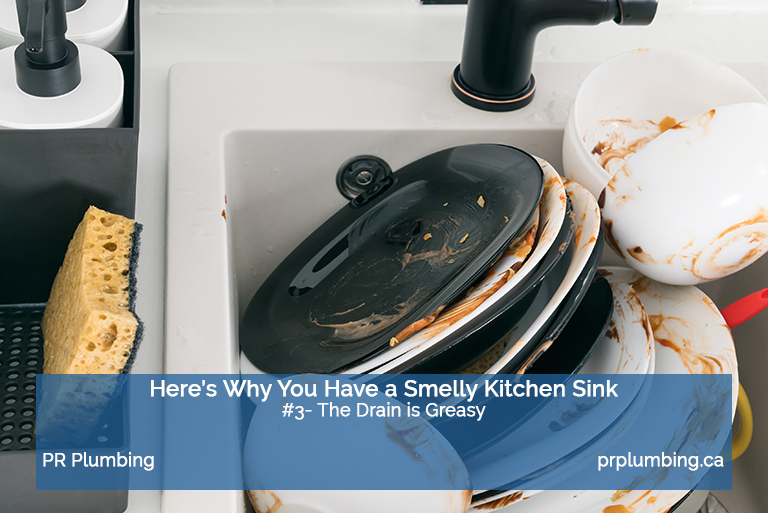

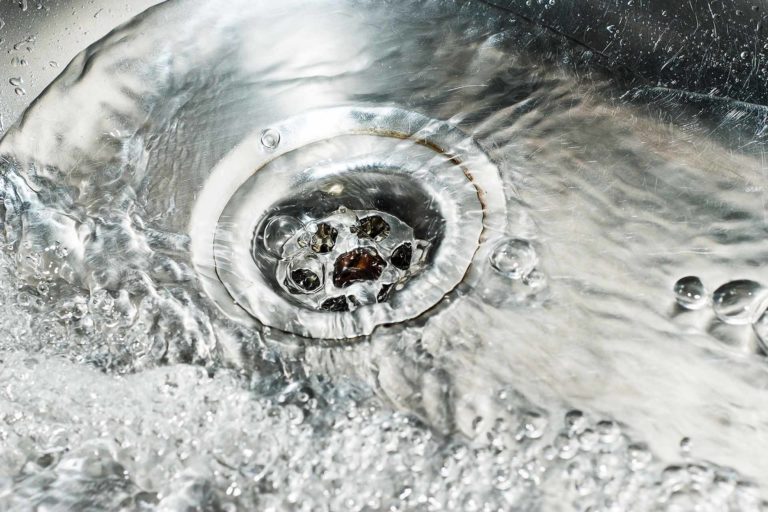











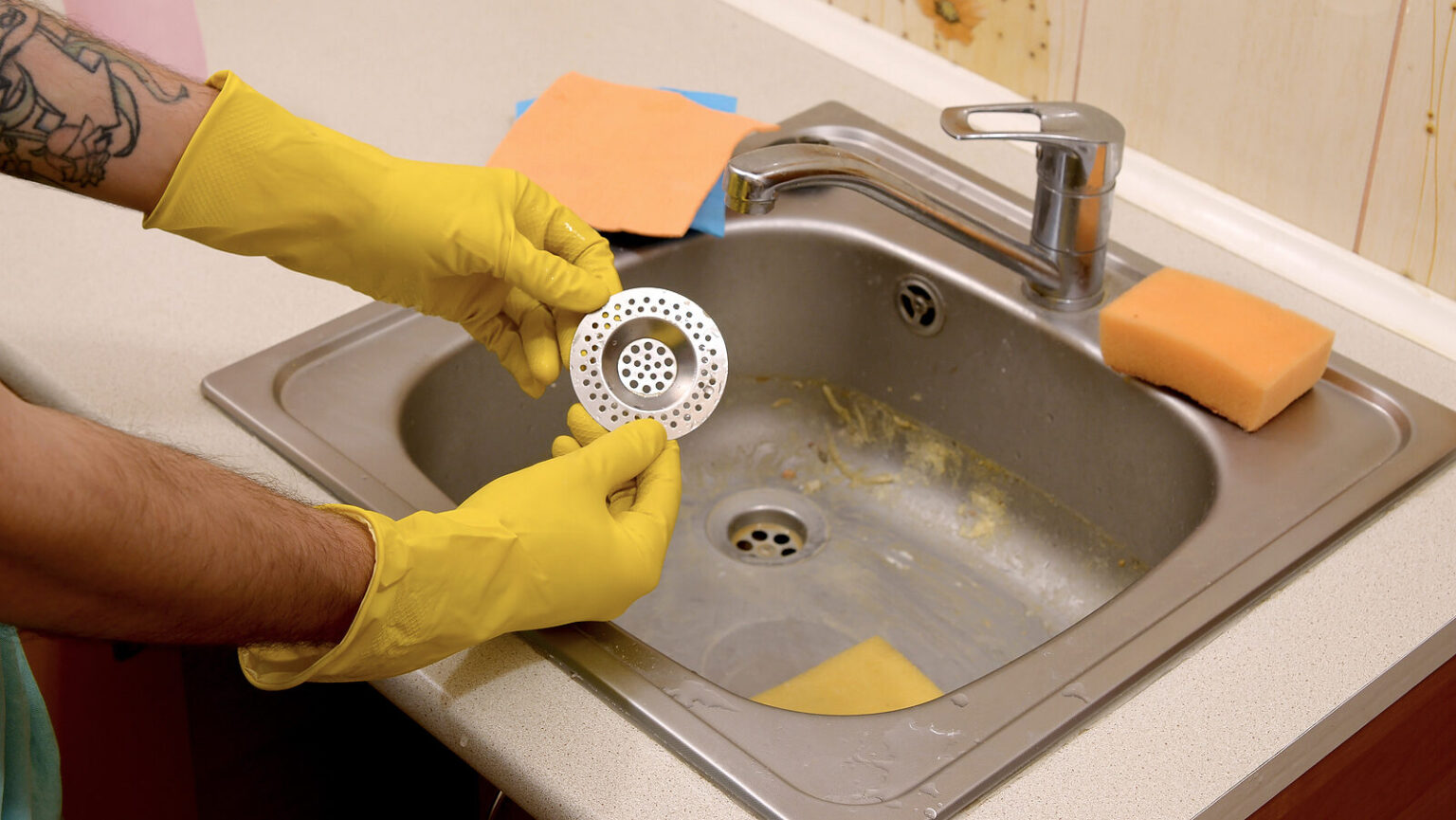




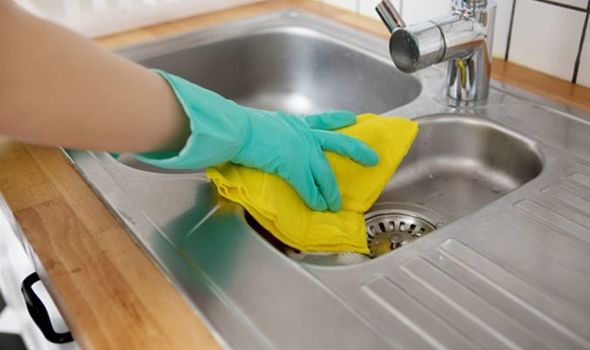
:max_bytes(150000):strip_icc()/how-to-clean-a-kitchen-sink-and-drain-01-5660035-a1d8afe3894346f9a579e66c55e64b7d.jpg)



:max_bytes(150000):strip_icc()/how-to-clean-a-kitchen-sink-and-drain-02-5660035-7a630bc36f2c401bbe412bbe85937ff3.jpg)
